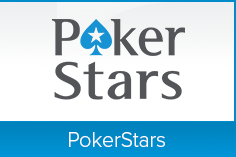Understanding Poker Odds

The one thing that defines any game of online poker, whether it's a cash game, tournament of SNG, is odds.
From the chances of a certain card falling on the river to the value the pot is offering, poker odds are a fundamental part of the game.
For many, the thought of processing numbers like a calculator is a frightening one. Fortunately, poker odds needn't be that scary. In fact, by the time you've reached the end of this page our strategy team at OnlinePoker.com will have not only given you the lowdown on basic poker odds but also shown you how you can use these numbers to improve your own decision-making processes.
Pot Odds
Aside from the odds of a particular card being dealt, the main figures you need to be aware of in a game of poker are pot odds.
This number refers to the amount of money that's IN THE POT versus the amount you need to CALL. The final part to this equation which you then need to factor in is the hand you're holding and the chances of a card you need hitting on either the turn or river.
For example, let's say there is in the pot and you need to call to stay in the hand. You're being offered pot odds of 5/1 (10/2 = 5). Once you have this number worked out you can then determine whether or not the pot odds make your hand worth playing.
Let's assume you were being given 5/1 pot odds on the flop and you were holding a flush draw. In this situation you'd have nine outs (cards left in the deck) to hit your hand twice (turn and river). Using the simple rule of "4 & 2" (you multiply your outs by four on the turn and two on the river to find out how likely you are to hit your cards), we know at this point you have roughly a 36 percent chance of hitting a flush.
Assuming you believe a flush is enough to win you the pot, you can make the call in this situation because the odds of hitting what you need are less than the pot odds i.e. the chance of hitting 1.77/1* vs. 5/1 pot odds.
(* To convert a percentage to a ratio, do the following: 100/X = Y > Y - 1 = Z > Z:1)
Essentially, any time the pot odds are greater than the odds you're being offered to hit your hand, then you can comfortably make the call.
Implied Odds
Taking this concept one step further, we get into the concept of implied odds. Based on the idea of pot odds, this poker theory basically states that if you believe your hand will earn you a certain amount of money in the future, then you can add it to your immediate pot odds.
If we were to write this as a simple equation, it would look like this:
Pot odds + future win = implied odds.
In the realm of online poker odds, implied odds are tricky to work out because you never know for sure whether an opponent is going to pay off your bet when you hit your hand.
So, at this point, you need to consider the style of your opponent, how disguised your hand is, the make-up of the board, and how large the pot is.
To highlight implied odds in action, here's an example of how suited connectors make good implied odds hands.
6-max Online Poker Cash Game:

- Blinds: $0.50/$1.00
- Hero: $157
- Villain: $375
- Hero's Hand: Jd 10d
- Board: Qs 3d 9s 4h 8s
In this six-handed cash game the hero raises for $3 under-the-gun with Jd 10d. A loose-passive player in the next seat flat calls and action folds to the small blind who raises to $13. The hero calls and the player behind folds. The flop falls Qs 3d 9s and the action goes check-check. The small blind then leads out for $16 on the 4h turn and the hero calls. The villain fires $36 on the 8s river and the hero moves all-in for $128.
Analysis
Although playing a hand such as Jd 10d against a re-raise isn't great, the hand does have great implied odds because if it can make a straight or some other form of good hand, then it will be well disguised, especially in a three-bet pot.
In fact, as the hand gets to the turn, the hero isn't getting the correct pot odds to draw to a straight. Why is this the case? Consider these equations:
Pot Odds:
.50 / = approx 2/1
Chances of hitting a straight:
- Eight outs (four kings and four eights)
- 8 x 2 = 16 percent
- 100/16 = 6.25
- 6.25-1 = 5.25
- Odds of hitting = 5.25:1
Pot odds vs. Chances of Hitting:
2:1 vs. 5.25:1 = the pot odds are smaller than the chances of hitting which means this wouldn't be a profitable call.
However, despite this equation suggesting a fold, the implied odds of the situation are good given the deep stacks and the fact the villain appears to have a fairly strong hand which they'd likely bet with again on the river.
Although the river card also brings a possible flush, the villain continues to bet and because the hero called on the turn, they can't fold on the river when the hand they wanted rolled in.
Because of this, calling is also too weak as it doesn't allow the hero to get the implied odds needed to justify the call on the turn. Considering all this, the villain has to move all-in. After taking a moment to think, the villain called with pot queens and the hero took down a huge pot and demonstrated the power of implied poker odds.
Reverse Implied Odds
The final thing you need to be aware of when you're calculating implied odds is something known as reverse implied odds.
If you make your hand and it's still second best (i.e. your opponent made a stronger hand) then you get what's known as reversed implied odds.
This situation commonly happens when you're chasing a mediocre flush. For example, you feel that you have the implied odds to chase a 10-high flush to the river. However, after hitting your hand, you commit your stack and find that the villain actually has a king-high flush.
Avoiding reverse implied odds is crucial to your bottom-line and the best way to do this is improve your starting hand selection. Chasing weak flushes, low straights and trash aces will not only cause you to leak money, but decimate your stack due to impact of reverse implied odds.
Put Odds To The Test
As you can see, the world of online poker odds isn't quite as scary as you might think. If you're able to understand basics pot odds then, over time, you shouldn't have any issues with working out implied odds and reverse implied odds.
Of course, doing these sorts of equations at the table isn't easy, so we suggest playing around with an online poker calculator and practicing some scenarios away from the table in order to improve your overall feel for the numbers involved in the game.
6 Independent and Regular Auditing
Part of the conditions of a gaming license being issued is that poker rooms must have their RNGs and security protocols regularly checked and audited.
There are several independent auditors, respected across the industry, who undertake the audits at poker rooms, and you can find their logos clearly on poker sites' homepages.
Look for major auditing firms like eCOGRA, TST or GLI; if they're checking RNGs they will be conducting annual audits to make sure everything is in order.
eCOGRA (eCommerce and Online Gaming Regulation Assurance) is an approved testing agency that services Internet poker rooms' software to make sure the games are completely fair. They also undertake 'penetration testing' to give the software a thorough work-over.
7 RSA Security Tokens
An RSA Security Token is a piece of physical hardware kit issued by some major poker rooms which can be used in addition to your password when logging in.
The Security Token features a 6-digit number on the screen. When you login at a poker site, you will be required to enter your RSA Security Passcode comprised of a four-digit PIN (sent by email) plus the six-digit Security Token number.
Security Tokens are a great way to improve security as you have to physically have the Token on your person, while a PIN number or password can be hacked and stolen remotely.
Who Are eCOGRA?

eCOGRA stands for e-Commerce and Online Gaming Regulation and Assurance. A leading testing agency based in the UK, eCOGRA specializes in certifying online gaming systems.
As well as ensuring the RNGs are working in proper order (via a complex and thorough series of tests) they also work to protect customers' private information, and ensure poker rooms give players fast and accurate player payouts.
Elsewhere, GLI (Gaming Laboratories International) and its testing wing, TST, carries out regular independent checks on all bets placed at online poker tables to make sure the games are being dealt properly
Most good poker rooms will display their auditors' certificates in PDF form somewhere on their site.




